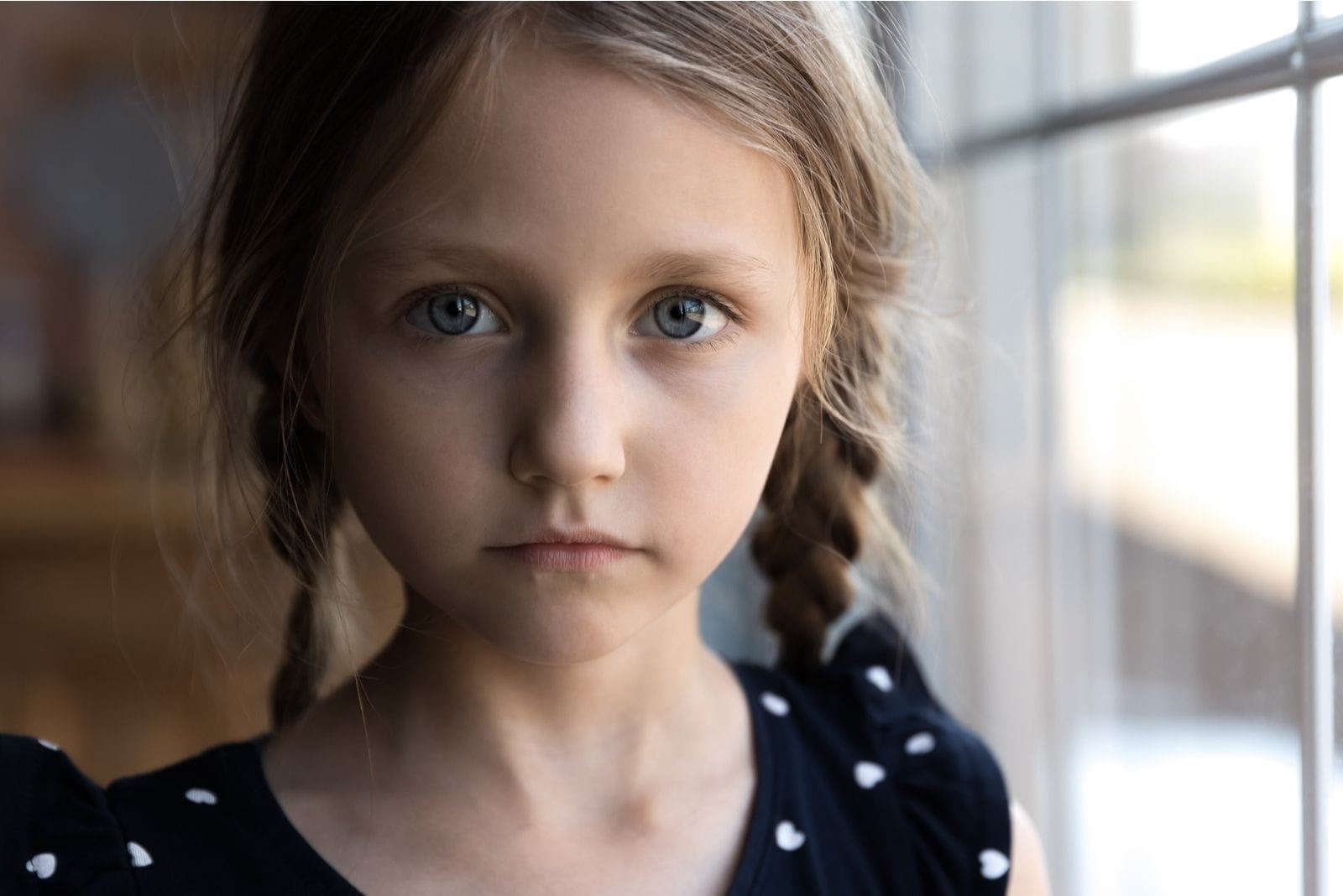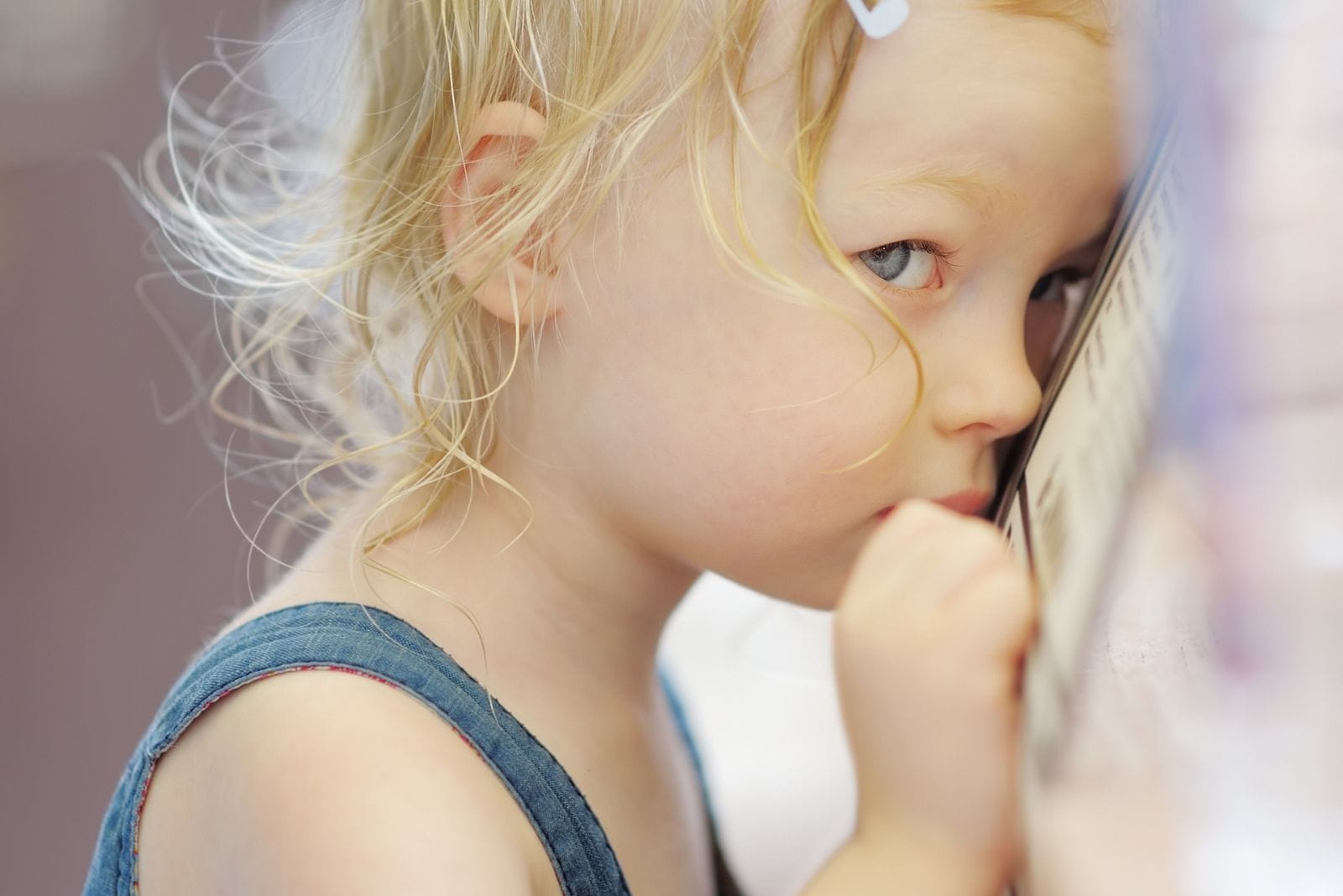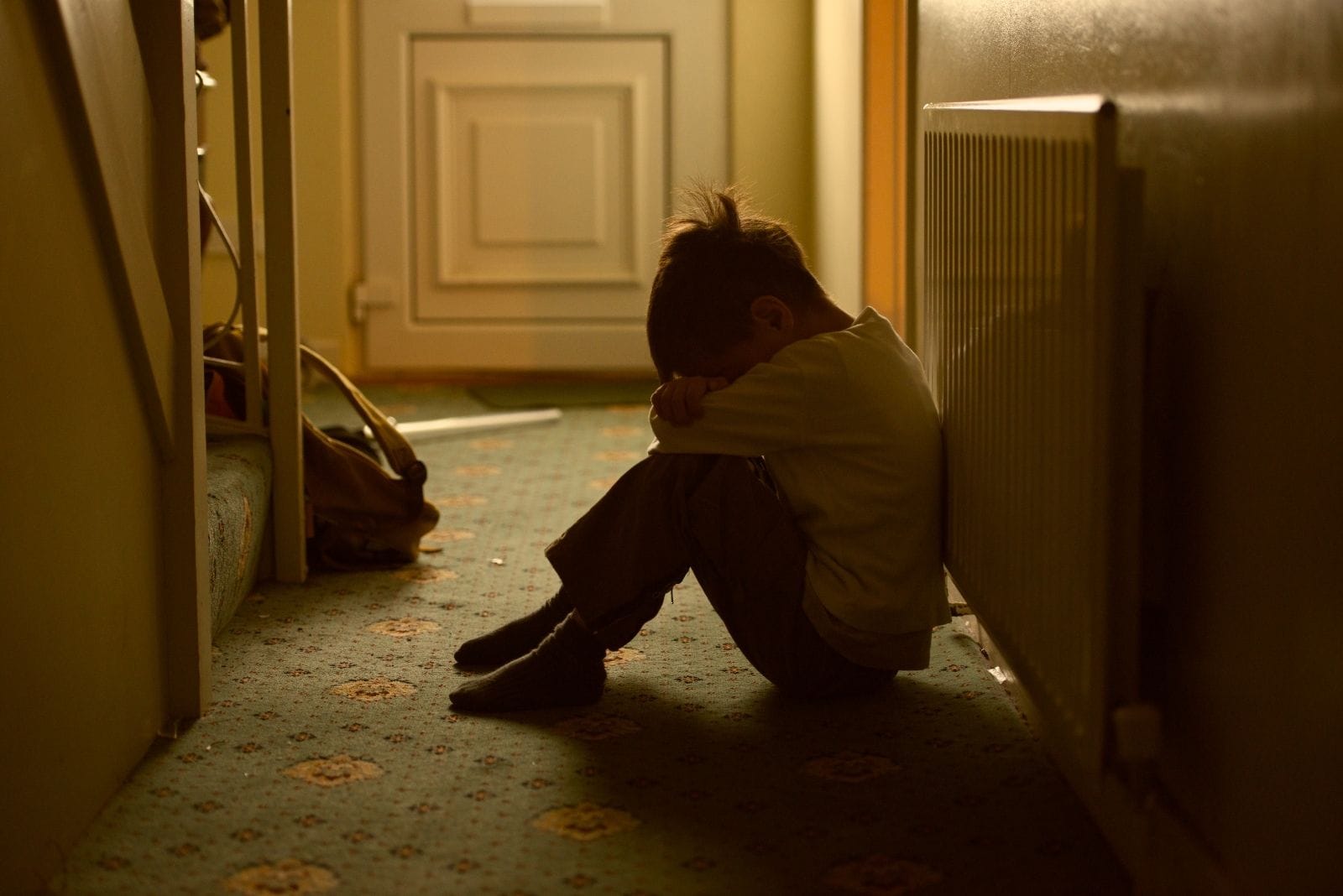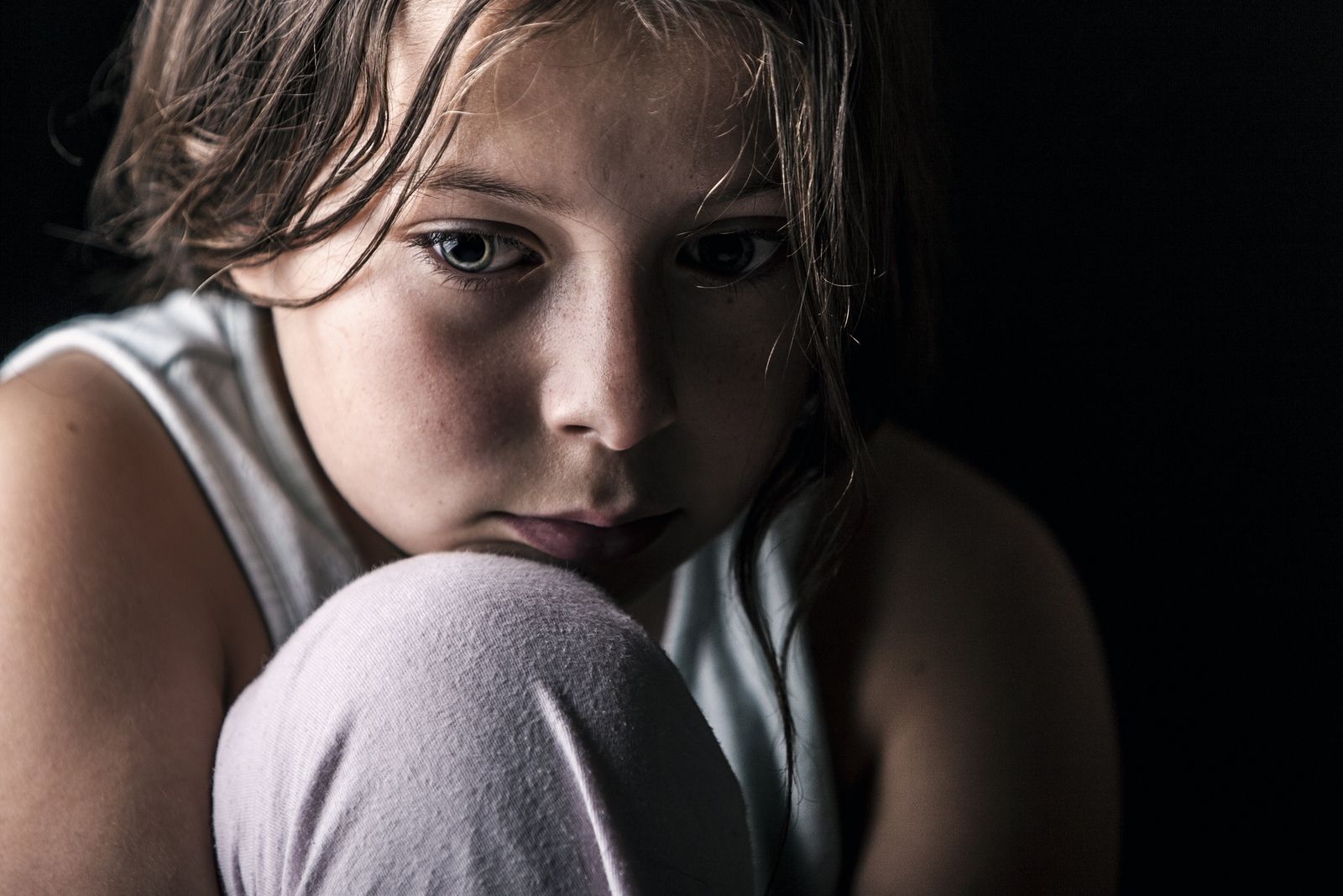8 segnali preoccupanti di genitori che fanno leva sul gaslight e come affrontarli
Tutti commettono errori e perdono la calma a volte. I genitori non sono diversi.
They’re human just like everybody else. However, genitori che si fanno luce con il gas sono un'altra cosa.
The signs of gaslighting parents are not always easy to see because, well, that’s come il gaslighting opere.
A prima vista non sembra nulla di allarmante, ma in realtà le critiche continue rendono i bambini confusi e feriti.
If you’re not sure what gaslighting means, here’s a little intro for you.
Che cosa sono i genitori "gaslighting"?

Let’s start with gaslighting.
Gaslighting is a form of psychological abuse where the abuser makes you feel and labels you as ‘crazy’ because of your reactions, even though your reactions and feelings are completely normal and expected.
This type of abuse is especially hard when it’s present in a child-parent relationship.
Unfortunately, many parents don’t even know they’re doing it because they see nothing wrong with their behavior.
However, it takes a major toll on kids. The reason why this happens so often is that parents tend to forget that children don’t have enough experience to view life and the world around them the same as they do.
Non solo, ma i genitori dimenticano che i bambini dovrebbero esplorare il mondo da soli, esprimersi autenticamente senza paura e non essere modellati per adattarsi alle loro aspettative.
There’s nothing more crushing for a child than denying their emotions, as a child doesn’t yet know how to control them.
When you gaslight your child, what you’re actually doing is making them upset on purpose, just to manipulate them later on into thinking they have no reason to be upset or emotional.
Perché spesso è difficile accorgersi del gaslighting in una relazione genitore-figlio?

A parent-child relationship is considered a relationship where parents have ‘power’ and ‘control’ over the kid and that’s why the disbalance of power goes unnoticed.
While parents must have authority, they shouldn’t abuse their power and try to push their own reality on their kids.
However, that’s what frequently happens.
A kid’s reality may be discredited because it doesn’t match the reality of one of the parents and therefore the child feels confused and questions themselves.
I genitori che fanno leva sul gaslighting si presentano in molte forme diverse e da molti contesti diversi.
Ad esempio, i genitori possono essere immaturi, eccessivamente protettivi, sopraffatti, non istruiti, narcisisti, ecc.
Narcissists are probably the most common and popular group of people who use gaslighting in their everyday life and usually aren’t even aware of it.
Una persona con disturbo narcisistico di personalità has a grandiose sense of self and a hard time accepting criticism, which is the main reason why they don’t understand their mistakes as a parent once they’re faced with them.
Purtroppo, se il gaslighting da parte dei genitori è qualcosa che un bambino incontra spesso durante il processo di crescita, questo ha sicuramente un impatto sulla sua salute mentale.
Un bambino che subisce il gaslight può diventare un adulto che lotta con l'insicurezza, l'ansia, l'aggressività, la paranoia, relazioni abusive, ecc.
Vedi anche: Lettera di una ragazza che è sopravvissuta all'illuminazione a gas
Segni di genitori che fanno leva sul gaslighting
Not acknowledging a child’s feelings

Una delle cose peggiori e più dolorose che possono capitare a un bambino è che i suoi sentimenti vengano ridicolizzati o non presi sul serio.
For example, if a child is afraid of something (like the dark, bugs, heights, etc.) and the parent says sentences like, “Stop being a baby!” they invalidate the child’s emotions.
In other words, they’re telling the child that their emotions are not important or normal.
It’s not surprising that children will think of their actions as weak and blame themselves when there’s nothing to blame themselves for.
Instead of belittling a child’s emotions, parents should be there for their child and try to understand what exactly made them uncomfortable.
A parent should respect their child’s emotions, even if they don’t understand them.
Decidere cosa piace e cosa non piace al bambino

Many parents make this mistake and it’s one of the biggest and easily brushed off red flags.
Prima ancora che il bambino abbia il tempo di decidere se gli piace o non gli piace qualcosa, lo fanno per lui.
A volte, anche quando i bambini decidono da soli, il genitore ignora la loro decisione e procede a fare ciò che intendeva fare comunque.
This is like saying, “You’re incapable of making decisions for yourself,” or, “Someone else knows what’s better for you.”
Of course, it’s no surprise when this child grows up into an adult who has problems with decision-making.
Il processo decisionale è una delle cose più importanti che i bambini dovrebbero imparare per diventare adulti sani e funzionanti.
Come educare i bambini a prendere buone decisioni invece di togliere loro il potere decisionale?
Of course, a child can’t have full responsibility for every decision in their young life.
Tuttavia, i genitori dovrebbero presentare loro le opzioni e le scelte prima di esprimere i propri pensieri e desideri quando si tratta di decidere.
The other thing is, parents should know that children sometimes make bad decisions and that’s normal. It’s a process of maturity.
Dismissing a child’s experiences

Unfortunately, there are so many instances where family members dismiss a child’s experiences just because they weren’t there to witness that something happened or they simply believe that the child is imagining things.
This is very hurtful and crushing for a child. Just imagine going to a person you have complete trust in, just to find out they don’t believe you or don’t think your experience is important.
Questo è il motivo per cui un bambino può perdere la fiducia nei confronti di un genitore.
Sì, i bambini sono fantasiosi, ma ciò che sentono e sperimentano deve essere preso sul serio.
Dismissing a child’s experiences can lead to a child not trusting their own perception later in life.
In altre parole, rende il bambino vittima di gaslighting e gli fa mettere in dubbio la propria sanità mentale.
Making fun of a child’s ideas

A un certo punto dell'età adulta, gli adulti dimenticano cosa significa essere bambini.
They forget it’s a completely different state of being, full of new experiences, without having to worry about mundane life stuff.
I bambini hanno naturalmente un'immaginazione sfrenata perché stanno appena iniziando a esplorare il mondo.
Their ideas are sometimes brilliant and sometimes silly and fun. That’s normal.
What’s not normal is abusive parents who make fun of their children for their ideas, opinions and observations…
As an adult, even if your child says something that doesn’t make sense, or is impossible or completely wrong, instead of making fun of them or scolding them, you should educate them.
Trivializing a child’s feelings is a cause of mancanza di fiducia in se stessi e dubbi su se stessi più avanti nella vita.
Incolpare un bambino

La verità è che i bambini imparano il loro comportamento dai genitori.
Whenever a child does something that a parent considers ‘bad’, they should ask themselves if they unconsciously do something on a regular basis that would make a child do such a thing.
There’s no point in blaming the child, who’s just exploring life and trying to figure out their place in the world.
They’re not here to do everything perfectly, they’re not here to fit someone else’s standards or be shamed for who they are.
There are so many other ways to show a child or a young person the consequences of their actions without directly blaming them, especially if they aren’t aware that the aftermath of it is something out of their control.
La comprensione e il sostegno sono cose che dovrebbero sempre venire prima del biasimo.
Aspettarsi che un bambino reagisca come un adulto

Children are not adults and they shouldn’t behave like adults. Expecting a child to react like an adult is just unrealistic.
Holding children to adult standards doesn’t make sense. Not only that but parents often even raise the standards for their children.
Pretendere che un bambino faccia qualcosa come un adulto con esperienza di vita adulta è una forma di manipolazione.
Tuttavia, questo comportamento manipolativo è purtroppo considerato normale.
Un genitore manipolatore, ad esempio, si aspetta che un bambino di tre anni esprima accuratamente i propri sentimenti come farebbero gli adulti.
That’s simply not possible since small children are new to feelings and don’t always know why they feel something when they do. Even many adults don’t!
Questo tipo di comportamento di gaslighting mette molta pressione sul bambino e rischia di creare un futuro adulto che ha problemi con un atteggiamento di eccessivo controllo, perfezionismo, ecc.
Mocking a child’s behavior

La derisione è anche una forma di abuso emotivo.
It signals to a child that their natural behavior or reaction is shameful, unintelligent or unaccepted, which strongly affects a child’s self-esteem.
In seguito, questo si riflette sul loro comportamento e sulle relazioni con altre persone, comprese quelle sentimentali.
Un bambino accetta le offese, le prese in giro, la negligenza e in generale un comportamento inaccettabile come qualcosa di normale e atteso.
Purtroppo, questo comportamento è largamente accettato come usuale, divertente e innocuo, mentre in realtà dice a una persona che dovrebbe vergognarsi della propria natura.
Vergognarsi di se stessi è spesso l'inizio dell'infelicità. Nessuna persona può essere felice senza la capacità di esprimersi liberamente e autenticamente.
Non scusarsi con un bambino

Una delle cose più strazianti che un genitore possa fare è non scusarsi con un figlio dopo che ha fatto qualcosa di sbagliato. famiglie tossiche.
It’s a normal and healthy thing to apologize after you’ve hurt someone, even if you did it unintentionally.
A gaslighter parent will do something they know is wrong and won’t apologize because of their pride.
Questo è un segnale di allarme che indica un genitore potenzialmente narcisista.
The first time this happens, children will automatically put the blame on themselves and accept their parent’s actions as normal.
O copieranno il loro comportamento o inizieranno a scusarsi eccessivamente con tutti. Nessuna di queste due opzioni è un meccanismo di coping sano.
Conclusione

Si spera che i segnali di cui sopra vi abbiano aiutato a individuare il gaslighting nella vostra vita, sia come genitore che come figlio.
We all carry some learned behavior from our parents, so there’s no point in putting the blame entirely on one person.
The gaslight effect comes in many different ways and as I said, many people who do it don’t even realize what they’re doing.
In altre parole, tutti noi siamo stati feriti in qualche modo e il nostro meccanismo di coping ci ha trasformato nelle persone che siamo.
Tuttavia, come adulti, dobbiamo assumerci la responsabilità del nostro comportamento e non smettere mai di migliorarci.
It’s possible to change our behavioral patterns and our life by using perspective or with the help of professionals such as clinical psychologists.
Dopo aver riconosciuto ciò che facciamo di sbagliato, dobbiamo cambiarlo. Dobbiamo anche scusarci con le persone che abbiamo ferito con la nostra mancanza di autoconsapevolezza.

If you’re the child of a gaslight parent, first and foremost, it’s important to heal yourself, understand where you’re coming from and understand how your circumstances affect your life decisions.
Parlarne con i propri genitori è facoltativo. Molti genitori narcisisti non si assumono mai la responsabilità delle proprie azioni, mentre altri si rendono conto dei propri errori più tardi nella vita.
You can always try to start a healthy conversation and inspire a reuniting and bonding experience but it all depends on the other person and if they’re ready for it.
The most important thing is making things clear to yourself and implementing healthy habits into your own life, without caring about what another person will think, even if they’re your parent.
Ricordate che potete sempre riprendervi il vostro potere, anche quando sembra impossibile.
La paura e le emozioni negative partono dalla testa e possono essere cambiate. Il primo passo, il più difficile, è credere di potercela fare.







